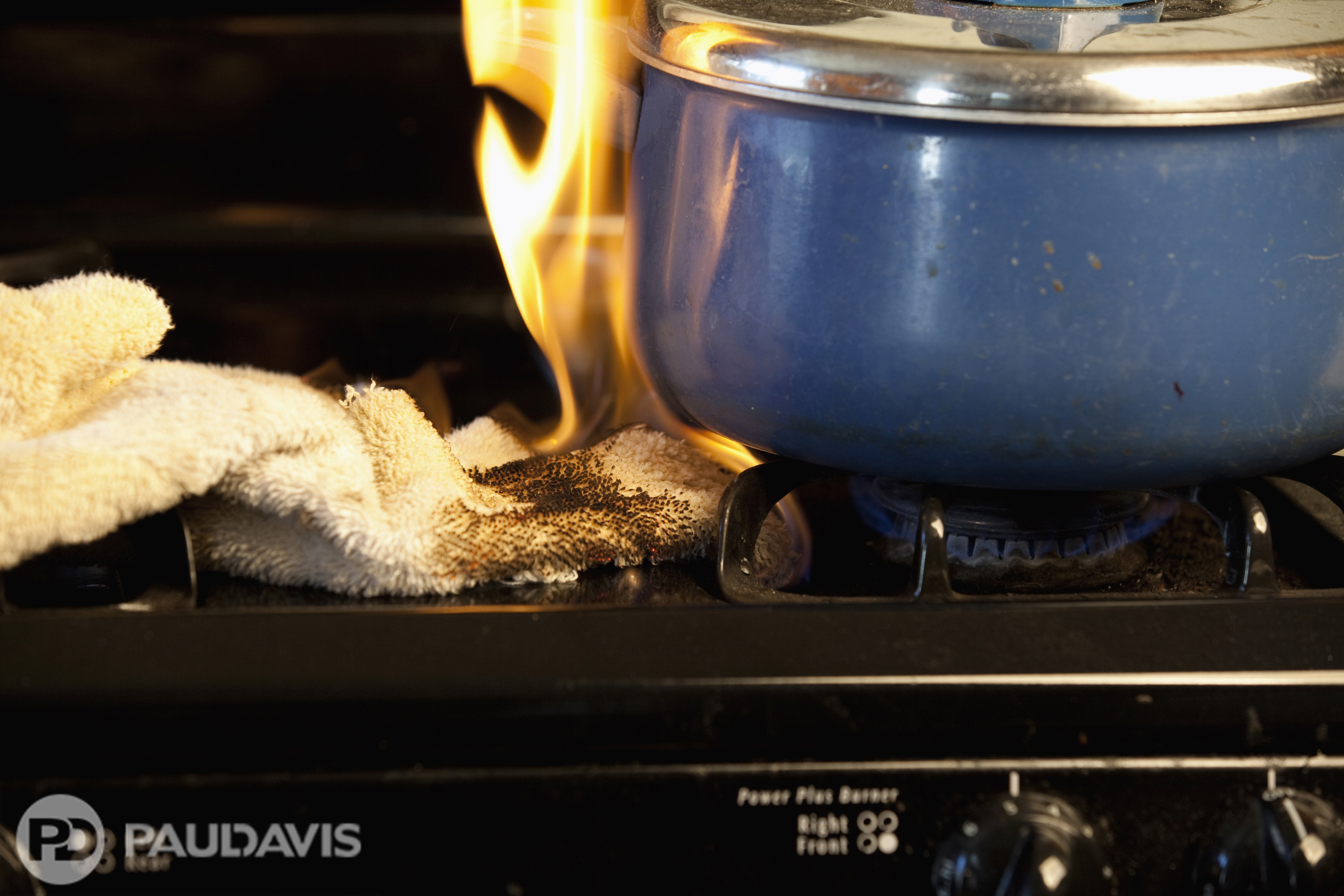
Fire is an essential element in commercial kitchens, transforming raw ingredients into delicious, artful dishes that support businesses and lure loyal customers. When fire escapes its confines, however, it destroys thriving food establishments in minutes. Fires that spread when the kitchen is closed are a particular risk in the current pandemic era due to a number of factors: distracted owners, reduced staff, sporadic hours of operation, inexperienced employees and delayed maintenance.
“Fires in commercial kitchens are usually ignited by one of several common sources,” says Ross Kollenberg, Chief Operating Officer, Paul Davis Restoration. “Six of 10 are caused by kitchen equipment. One in 10 is caused by electrical equipment. The other three top causes are heating equipment, smoking and arson. Our team helps your business recover if it’s damaged by a fire but the best-case scenario: you never need us because you took smart precautions.”
Follow fire codes: Many fire marshals inspect commercial kitchens free of charge to evaluate fire code adherence. Common violations include blocked exits, fire extinguishers that aren’t maintained properly and lack of lighted exit signs.
Install and maintain fire protection systems: Equip your business with sprinkler systems, fire extinguishers that are regularly maintained, suppression systems that automatically shut off gas and electrical supplies in case of fire, emergency lighting, monitored alarm systems and smoke detectors.
Conduct training: Train employees – even temporary staff - how to prevent fire and what to do if a blaze breaks out. Explain alarm system operation as well as location and operation of fire extinguishers. Create kitchen protocols that reduce fire risks – the last person in the kitchen ensures all equipment is off and cool, for instance - and post evacuation plans.
Maintain cooking equipment: Clean equipment regularly and service it with the frequency manufacturers specify. Ensure that employees do not push equipment beyond stated operating parameters.
Remove grease: Grease is highly flammable and, without frequent removal and powerful cleaning products, quickly builds up on walls, clogs traps and coats ventilation systems. Specialized cleaning services should regularly remove grease that can feed after hours conflagrations.
Keep flammable items away from ignition sources: Flammable items should never be placed near ignition sources - even if the kitchen is closed and equipment is cold. Allowing even temporary storage of this type – a stack of clean towels left atop the salamander and then forgotten - creates bad habits that lead to safety risks.
Maintain electrical systems: Commercial kitchen equipment requires high voltage electricity that can be dangerous if not properly controlled. Inspect systems and wiring regularly to ensure electrical supply components – cords, breakers, outlets, boxes, plugs, sockets - are in good repair. Upgrade electrical equipment when necessary to suit the voltage drawn by energy-hungry kitchen equipment. Of course, hire certified electricians to do all maintenance.
Control tobacco materials: Cigarettes should be disposed of in a designated receptacle away from combustible items (like trash) and smoking should take place only outdoors. Many a smoldering cigarette has sparked a late-night dumpster fire with devastating consequences.
Tidy up: Trash, paper products and cloth are highly flammable. Empty trash regularly. Store paper and fabric items like tablecloths and napkins in fireproof lockers. Finally, Kollenberg advises, handle used rags with care.
“Place them in a non-flammable laundry bin away from the kitchen,” he concludes. “Surprisingly, they can spontaneously combust hours later. Research by fire experts have found that oil residue as low as three percent can lead to spontaneous ignition.”
